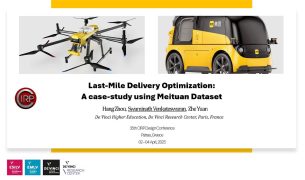Paris is more than a cultural and political capital—it’s a strategic hub for aerospace engineering. With significant industry players and specialized clusters, the Île-de-France region offers a strong foundation for students aiming for careers in aeronautics and aerospace.
Choosing where to study can shape a career. In aerospace engineering, Paris stands out for its industry ecosystem and academic-business ties.
Aeronautics and aerospace: A Strategic Industry in the French Economy
Aeronautics and aerospace represent a pillar of the French economy. With a significant share of national employment and innovation concentrated in this sector, the country has developed a strong infrastructure to support its growth. Competitiveness clusters and regional hubs across France attract global enterprises and skilled professionals. Among these regions, Île-de-France—home to Paris—plays a central role.
Île-de-France — Paris: A Core Aerospace Cluster
Approximately 10% of all aerospace jobs in France are located in Île-de-France. The region hosts several of the industry’s most prominent players, including Safran, Thales, and Dassault Aviation. This density of companies and expertise fosters a unique environment where students can closely connect with the realities of the field.
Safran: Global Presence and Sustainable Vision
With 100,000 employees and €27.3 billion in sales in 2024, Safran is a major high-tech group operating in the aviation, defense, and space markets.
Headquartered in Île-de-France, Safran is deeply invested in sustainability and innovation. It supports research and development initiatives that prioritize environmental responsibility. Its diverse locations across France ensure a constant interplay between academic research and industry applications.
Thales: Driving Deep Tech Forward
Thales, another major group based in the region, has more than 83,000 employees globally. Focused on digital and deep technologies—like AI, cybersecurity, and quantum computing—Thales plays a vital role in aerospace, defense, and space. Its proximity and partnership with higher education institutions in Paris allow students to access real-world insights and innovation trends.
Dassault Aviation: Engineering Sovereignty and Innovation
Dassault Aviation, a long-standing French and international aerospace figure, has built over 10,000 aircraft for 90 countries. As the designer of the Rafale fighter jet and Falcon business jets, the company combines cutting-edge military and civilian applications.
With 14,600 employees (77% based in France), Dassault also contributes to research in autonomous systems, 3D design with CATIA™, and advanced prototyping.
Dassault maintains a prominent position in sovereign technologies as a core shareholder in Thales and partners in key defense initiatives such as the nEUROn drone and New Generation Fighter programs.
Academic-Industry Synergies in Paris
The strategic location of aerospace leaders in Paris strengthens the link between education and industry. Companies like Thales and Dassault Aviation actively engage with ESILV students through partnerships.
These partnerships provide targeted internship and work-study opportunities, which are disseminated directly via campus channels and supported by academic staff.
Events like business and expert conferences, often hosted on campus, expose students to current industry challenges and innovation. Dassault Systèmes sponsored the 2024 graduating class, illustrating the close relationship between educational programs and business leadership.
MSc Aeronautical & Aerospatial Engineering
This MSc, focused on students pursuing careers in the aeronautical and aerospace sectors, bridges the gap between design, technology, and real-world applications. The curriculum covers advanced aerodynamics, propulsion, avionics, and material science, supported by hands-on experience with simulation tools and laboratory work.
Multidisciplinary teamwork, problem-solving, and autonomy are central to the learning approach, ensuring graduates are prepared to tackle industry challenges and contribute to innovation in aircraft and space system development.
- Duration: 12 months
- Intake: October
A Launchpad for Global Careers
Studying aerospace engineering in Paris means entering a network beyond national borders. With access to world-class companies, innovation hubs, and collaborative projects, students gain technical knowledge and practical exposure to the sector’s global challenges.





















